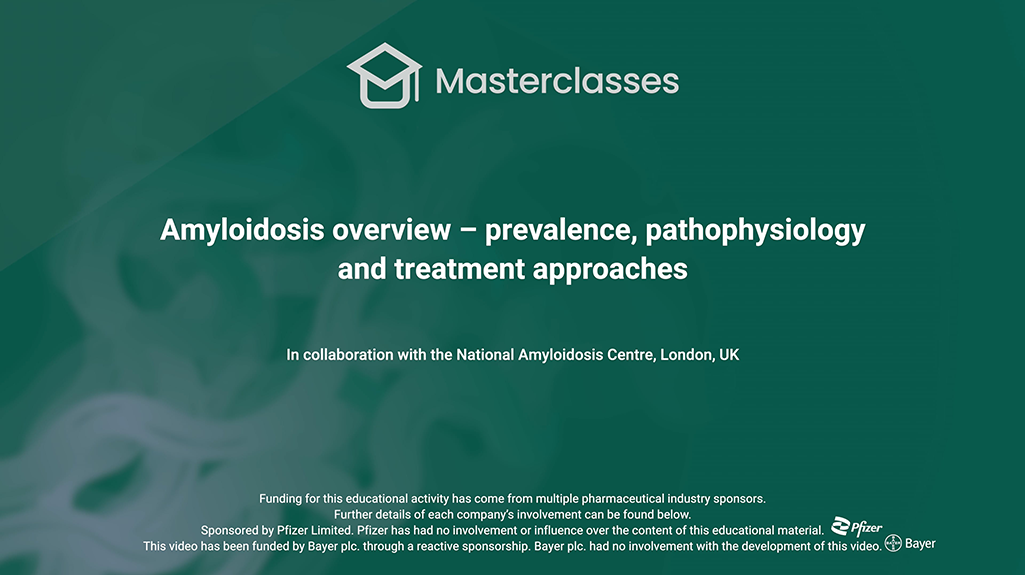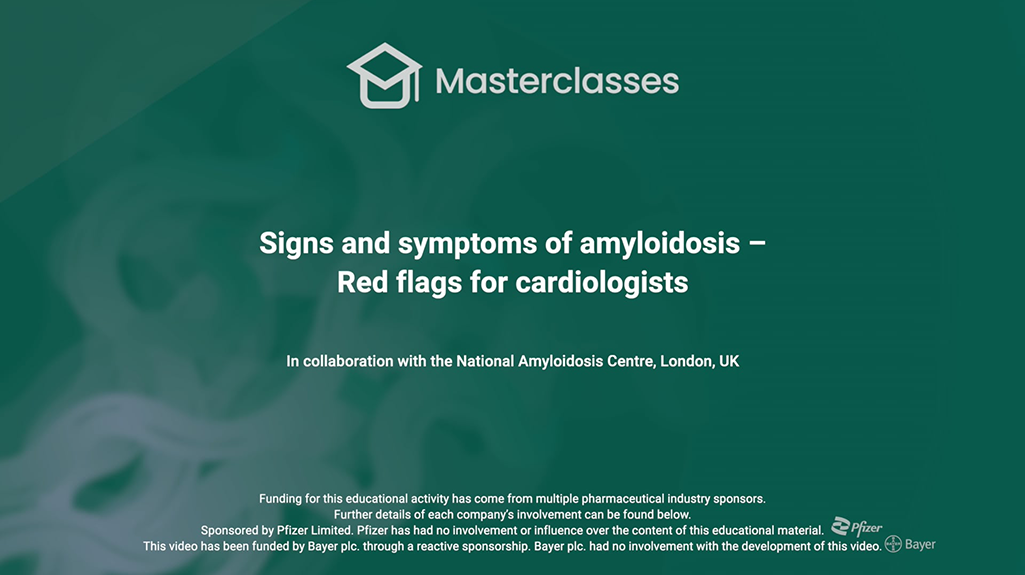Speakers
Dr Derek Connolly Consultant Cardiologist at Birmingham City Hospital, Birmingham
Dr Dermot Neely Retired Lipidologist, HEART UK Trustee
Learning objectives
- Triglycerides as a target for treatment
- How treatment can improve outcomes
- The role of highly-purified omega-3 fatty acid (icosapent ethyl) to treat hypertriglyceridaemia
- Early versus later omega-3 fatty acid studies
- REDUCE-IT – randomised, double-blind, placebo-controlled trial looking at cardiovascular risk reduction with icosapent ethyl for hypertriglyceridaemia
Learning module instructions
This BJC TV Learning module has a recommended award of 1 CPD credit for completion (1 hour of learning). Completion requires a score of at least 80%. If less time is spent learning, then you should claim a reduced credit value. After you have successfully completed the test you will be able to download your certificate.
Quiz Summary
0 of 5 Questions completed
Questions:
Information
You have already completed the quiz before. Hence you can not start it again.
Quiz is loading…
You must sign in or sign up to start the quiz.
You must first complete the following:
Results
Results
0 of 5 Questions answered correctly
Your time:
Time has elapsed
You have reached 0 of 0 point(s), (0)
Earned Point(s): 0 of 0, (0)
0 Essay(s) Pending (Possible Point(s): 0)
Categories
- Not categorized 0%
- Review
- Answered
- Correct
- Incorrect
-
Question 1 of 5
1. Question
CorrectIncorrect -
Question 2 of 5
2. Question
CorrectIncorrect -
Question 3 of 5
3. Question
CorrectIncorrect -
Question 4 of 5
4. Question
CorrectIncorrect -
Question 5 of 5
5. Question
CorrectIncorrect
References
- NIH. High blood triglycerides. 2023. Available at: https://www.nhlbi.nih.gov/health/high-blood-triglycerides#:~:text=Triglycerides%20are%20a%20type%20of,and%20other%20fats%20you%20eat (accessed March 2024)
- NICE. Icosapent ethyl with statin therapy for reducing the risk of cardiovascular events in people with raised triglycerides [TA805] 2022. Available at: https://www.nice.org.uk/guidance/ta805. (accessed March 2024)
- Padda IS et al. StatPearls [Internet]. Available at: https://www.ncbi.nlm.nih.gov/books/NBK592399/ (accessed March 2024)
- Heart UK. Type 3 hyperlipidaemia. Available at: https://www.heartuk.org.uk/genetic-conditions/type-3-hyperlipidaemia (accessed March 2024)
- Heart UK. Triglycerides. 2024. Available at: https://www.heartuk.org.uk/cholesterol/triglycerides (accessed March 2024)
- Bhatt DL et al. N Engl J Med 2019;380:11–22
- Benuck I et al. Endotext [Internet]. Available at: https://www.ncbi.nlm.nih.gov/books/NBK395574/ (accessed March 2024)








